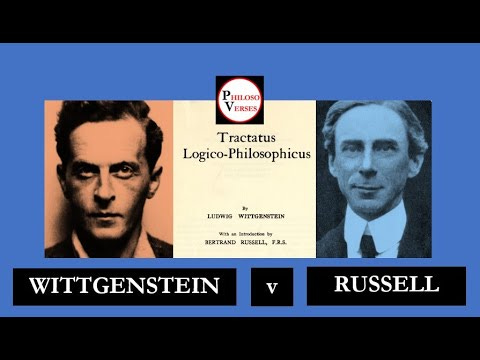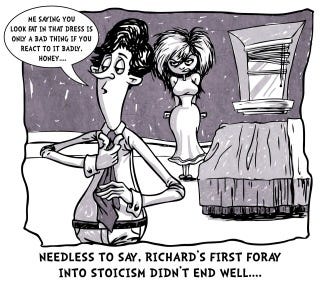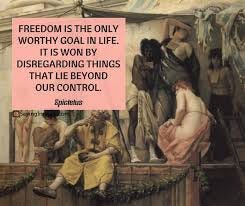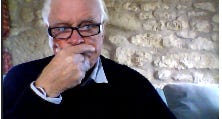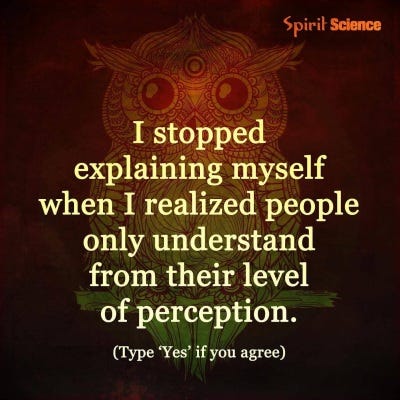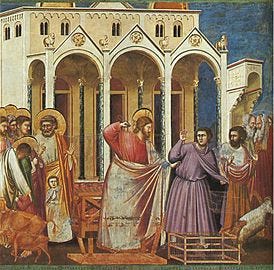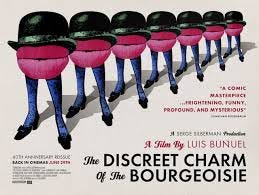´Das ist nicht nur nicht richtig, es is nicht einmal falsh! Not even wrong, not even there. All counterfeit, yet to counterfeit the counterfeit? a crime.
The Right Tool for the Job
Ludwig Wittgenstein: A Philosophical Journey
In the realm of 20th-century philosophy, few figures loom as large as Ludwig Wittgenstein. His groundbreaking work in logic and language games has left an indelible mark on the field, and his influence continues to be felt to this day.
Wittgenstein's early foray into philosophy was marked by the publication of his highly technical and unapologetically pedantic first book, "Tractatus Logico-Philosophicus." Despite its technical nature, the work also exhibited a touch of mysticism and poetry, reflecting the eccentricity of its author. This seminal work brought Wittgenstein both fame and global recognition, establishing him as a leading figure in the world of philosophy.
Prior to his philosophical pursuits, Wittgenstein had embarked on a career as a young engineer, delving into the intricacies of aerodynamic calculations while designing propellers at college. It was during this time that he found himself drawn to the world of mathematics, particularly the groundbreaking views of Gottlob Frege and Bertrand Russell. Their assertion that mathematics was founded on logic captivated Wittgenstein, leading him to explore the profound connection between numbers and logic.
Intrigued by Frege's and Russell's perspectives, Wittgenstein sought to delve deeper into the foundational relationship between mathematics and logic. His own form of logical notation sought to demonstrate the inherent connection between the two, reflecting his fervent belief in the unifying power of logic.
However, Wittgenstein's journey into the world of logic was not without its challenges. A paradox identified by Russell had initially undermined Frege's calculations, prompting Russell to embark on a quest to establish the logical foundations of mathematics. After years of dedicated collaboration with a colleague, Russell achieved a significant breakthrough when they conclusively proved the fundamental equation 1 + 1 = 2. This monumental achievement underscored the pivotal role of logic in shaping mathematical truths.
Inspired by the quest to ground all understanding in a concrete foundation of logic, Wittgenstein sought out Frege and Russell, eager to further explore their revolutionary ideas. His intellectual prowess and unwavering commitment to logical inquiry soon captured Russell's attention, leading to Wittgenstein's enrollment as a student at Cambridge.
At Cambridge, Wittgenstein's relentless pursuit of truth and his emphasis on the primacy of logical certainty set him apart from his peers. While Russell was content to accept empirical observations, Wittgenstein fervently asserted that true certainty could only be found in logical equations. This fundamental difference in perspective underscored Wittgenstein's unwavering dedication to the pursuit of absolute truth through logic.
Wittgenstein's passionate advocacy for grounding all understanding in logic often led to confrontations with his contemporaries. His bold assertion that there was no such thing as a simple empirical fact challenged conventional wisdom and sparked intense debates within academic circles. Despite occasional clashes, Wittgenstein's intellectual acumen and unyielding commitment to logical analysis earned him recognition as a formidable thinker.
The outbreak of World War I disrupted Wittgenstein's philosophical pursuits, as both he and Russell found themselves embroiled in the conflict. While Russell became an active objector and faced imprisonment, Wittgenstein displayed remarkable bravery on the battlefield, earning medals for his valor amidst the chaos of war. Throughout this tumultuous period, Wittgenstein continued to engage in philosophical reflections, capturing his thoughts in notes that would later coalesce into his seminal work.
Amidst the upheaval of war, Wittgenstein's philosophical insights crystallized into the "Tractatus Logico-Philosophicus," a work that would revolutionize the landscape of philosophy. Despite its cryptic title, which playfully alludes to Spinoza's "Tractatus Theologico-Politicus," the book's profound statements and propositions captivated readers and scholars alike.
The "Tractatus Logico-Philosophicus" presents a formidable intellectual challenge, with its succinct yet densely layered propositions numbering a mere 70 pages. Wittgenstein's meticulous numbering system reflects the intricate web of interconnected thoughts that form the framework of his philosophical treatise. Each proposition unfolds like branches on a tree, expanding and intertwining to form a complex tapestry of philosophical inquiry.
At the heart of the "Tractatus," Wittgenstein grapples with the limitations of language and its inherent inability to fully capture the complexities of reality. He posits that the logic of language is often misunderstood, leading to a faulty perspective that hinders our ability to fully comprehend the world around us. In response to this conundrum, Wittgenstein develops his groundbreaking "picture theory," which elucidates the intricate relationship between language, reality, and representation.
According to Wittgenstein's picture theory, the natural world and a canvas are distinct entities, yet an artist's brush serves as a conduit that merges their identities, creating a representation that mirrors reality. This tenuous link between the world and its portrayal underscores the faint yet profound connection that underpins representation.
Wittgenstein contends that this connection is rooted in the internal structure shared by both reality and its depiction. Objects exist in relation to one another, forming intricate arrangements that define their essence. This underlying logical form serves as the linchpin that enables us to perceive and reproduce these relationships in our attempts to portray reality.
The implications of Wittgenstein's picture theory extend beyond visual representation to encompass language itself. Just as an artist imbues a painting with meaning through structure and form, language possesses its own logical structure that underpins its ability to represent reality. Words arranged in specific configurations mirror the world they seek to describe, capturing its essence through logical form.
However, Wittgenstein's exploration of language's logical form also leads him to confront the limitations of linguistic expression when grappling with abstract concepts such as philosophy, ethics, religion, and aesthetics. In these domains, where concrete pictorial representation is elusive, language falters in its ability to convey meaning with precision.
Wittgenstein's conclusion is stark: whereof one cannot speak, thereof one must remain silent. This enigmatic statement encapsulates his belief that language is ill-equipped to grapple with certain realms of human inquiry. In acknowledging this limitation, Wittgenstein challenges us to confront the boundaries of linguistic expression and embrace the ineffable nature of certain aspects of human experience.
The "Tractatus Logico-Philosophicus" presents a profound paradox: by its own rules, it renders itself nonsensical. Yet within this paradox lies an invitation to transcend linguistic constraints and embrace a deeper understanding that transcends words.
While some contemporaries grappled with Wittgenstein's radical assertions, others found themselves captivated by the audacity of his ideas. Russell, despite his initial perplexity at Wittgenstein's methodology, recognized the profound implications of his work. Even as he grappled with the implications for his own philosophical endeavors, Russell acknowledged the transformative impact of Wittgenstein's insights.
In retrospect, Wittgenstein's "Tractatus Logico-Philosophicus" stands as a testament to his relentless pursuit of truth and his unwavering commitment to logical inquiry. Its enigmatic propositions challenge readers to transcend linguistic confines and embrace a deeper understanding that transcends words.
As we navigate the labyrinthine corridors of Wittgenstein's philosophical journey, we are confronted with profound questions that defy easy answers. In embracing the paradoxes and limitations of language, Wittgenstein beckons us to contemplate the ineffable mysteries that elude linguistic expression.
In concluding our exploration of Ludwig Wittgenstein's philosophical odyssey, we are reminded of his parting admonition: having ascended the steps to understanding, we must ultimately cast aside the very ladder that brought us there. In this act of transcendence, we are called upon to embrace the enigmatic realm beyond words—a realm where silence speaks volumes and ineffable truths await our contemplation.
KARL POPPER: BREAKING OUT OF THE PRISON OF LANGUAGE
July 15, 2012 · by leakygrammar · in People, Random Leaks. ·
Having just written about Wittgenstein, I thought following up with a short post on the philosopher Karl Popper would be apt. Wittgenstein and Popper are an interesting duo, both very different kinds of planets orbiting around the sun of philosophical thought. On an evening in October of 1946, Popper, Wittgensten as well as other philosophers (including Bertrand Russel) had a gathering of the Cambridge Moral Science Club held at King’s College. Popper was to present on the topic, “Are There Philosophical Problems?”
And for about ten minutes, a battle of philosophical perspectives raged in that small room. In their book, ‘Wittgenstein’s Poker,’ which attempts to uncover what exactly happened that night, Edmonds and Eidinow write,
“What is clear is that there were vehement exchanges between Popper and Wittgenstein over the fundamental nature of philosophy – whether there were indeed philosophical problems (Popper) or merely puzzles (Wittgenstein).”
Why was Wittgenstein so angry? And why did he seemingly threaten Popper with a red-hot fire poker? Only debated recollections remain from that evening, but what we do know is that probably two of the greatest philosophers of that time both came to that meeting thinking that they were protecting philosophy from the errors of its past, and Popper saw Wittgenstein as “philosophy’s ultimate enemy.”
In Popper’s memoir he writes that Wittgenstein “had been nervously playing with the poker” using it like a “conductor’s baton to emphasize his assertions.” At one point the question of Popper’s view on ethics came up, and “Wittgenstein challenged Popper to give an example of a moral rule.” Popper writes, “I replied: ‘Not to threaten visiting lecturers with pokers.’ On saying this, Wittgenstein threw down the red-hot poker in a rage and stormed out of the room.
It’s an interesting little event in the history of bizarre encounters in academia, where those who hold there ideas so dear let the emotional conviction of their ideas run rampant in their debates.
Feeling that I needed to know a little more about Popper, him having a similar background to Wittgenstein (both having lived in Vienna during the famous Vienna circle, both coming from wealthy families, and both having escaped Vienna during World War II because of their Jewish heritage) I read his essay, “The Myth of the Framework.”
I am posting it here, because he said some interesting things about language and the implications of learning another language.
Popper begins by quoting Plato,
“Those who believe this, and those who do not, have no common ground of discussion, but in view of their opinions they must of necessity scorn each other.”
When I read this quote, I couldn’t help but think he had the brief ten-minute raging philosophical duel with Wittgenstein somewhere in the back of his mind when he wrote this essay.
The essay is worth a read, but a nice overview of its main points with some insightful commentary can be found here. My main interest in bringing it up here is that in order to argue his point, that discussions with people from different perspectives is the only way to make progress, he brings up Whorf‘s notion of linguistic relativity, linguistic relativity being the idea that language influences or perhaps even structures the way we see the world. And people with different languages therefore see the world in a different way.
There is a passage that Popper writes on this I thought worth quoting in full, because it gives an interesting perspective that sees language as having the power to shape reality as well as the power of learning a new language to break out of old frameworks.
The metaphor of language and prison:
“Whorf himself, and some of his followers, have suggested that we live in a kind of intellectual prison, a prison formed by the structural rules of our language. I am prepared to accept this metaphor, though I have to add to it that it is an odd prison as we are normally unaware of being imprisoned. We may become aware of it through culture clash. But then, this very awareness allows us to break the prison. If we try hard enough, we can transcend our prison by studying the new language and by comparing it with our own.”
Widening the prison:
“Admittedly, the result will be a new prison. But it will be a much larger and wider prison. And again, we will not suffer from it. Or rather, whenever we do suffer from it, we are free to examine it critically, and thus to break out again into a still wider prison.”
Prisons as Frameworks:
“The prisons are the frameworks. And those who do not like prisons will be opposed to the myth of the framework. They will welcome a discussion with a partner who comes from another world, from another framework, for it gives them an opportunity to discover their so far unfelt chains, to break these chains, and thus to transcend themselves. But this breaking of one’s prison is clearly not a matter of routine: it can only be the result of a critical effort and of a creative effort.”
In some ways, learning a new language is like expanding the horizons of our current prison, not simply because it forces us to experience new ways of seeing the world, but rather because it forces us to reexamine our own.
March 17, 2018
AT TIMES LIKE THESE. EPICTETUS OR WITTGENSTIEN. #COVIDPURPOSE #CONQUESTOFDOUGH #THEROADTOSERFDOM NIHIL SUB SOLE NOVUM. @DAVIDGRAEBER @FINANCIALEYES @JOEBLOB20 #DEBTBOMB @DOMINICFRISBY
Showing the way out of the bottle, Wittgenstein or Epictetus?
In Such times as these John, I usually reach for the Enchiridion. Epictetus and his handy handbook reminds us all to Stick to our own knitting and do the right thing, eventually every one cottons on ( and it only takes 5% of us ( see Erica Chenoweth’s Work),
https://en.wikipedia.org/wiki/Erica_Chenoweth
http://letthemconfectsweeterlies.blogspot.se/2017/03/this-motley-fool-from-2009-via-2011.html
You won’t — I really believe — get too much out of reading it. Because you won’t understand it; the content will seem strange to you. In reality, it isn’t strange to you, for the point is ethical. I once wanted to give a few words in the foreword which now actually are not in it, which, however, I’ll write to you now because they might be a key for you: I wanted to write that my work consists of two parts: of the one which is here, and of everything which I have not written. And precisely this second part is the important one.
On his Tractatus Logico-Philosophicus, in a letter to Ludwig von Ficker (1919), published in Wittgenstein : Sources and Perspectives (1979) by C. Grant Luckhard
“Remember that we sometimes demand explanations for the sake not of their content, but of their form. Our requirement is an architectural one; the explanation a kind of sham corbel that supports nothing.”
― Ludwig Wittgenstein, Philosophical Investigations
“What is your aim in Philosophy?”
“To show the fly the way out of the fly-bottle”
― Ludwig Wittgenstein, Philosophical Investigations
tags: quietism
#JeSuisBourgoiseBlancHomme #ConquestofDough. Je Suis Bourgoise Blanc Homme. Stay Safe online and on the streets. #OccupyTheEuropeanSpring
October 14, 2019
PELAGIANISM, FREE WILL DETERMINISM #ACTUALFANTASY #156 #GRUBSTREETJOURNAL
123
The Pelagian Controversy In Our Time https://t.co/gQ2EvcHjQr #BitChute #156. Actual fantasy #GrubStreetJournal @StevenBKurtz
— GrubStreetJournal (@GrubStreetJorno) October 14, 2019
https://twitter.com/GrubStreetJorno/status/1183751582111940608
@DavidGolemXIV @financialeyes @JoeBlob20 The Intervention of Dennet is very funny. #TheScienceDelusion #RupertSheldrake
mentions #156 #ActualFantasy #SEEDS #SurplusEnergyEcomomicsSystem #DrTimMorgan
April 24, 2018
THINKTANKS, EXPERTS, QUANGOS. NEO-LIBERAL THOUGHT COLLECTIVE AND GETTING THINGS DONE. TIME TO TAKE THE BALL BACK FOR WE THE PEOPLE.
COMPENSATION FOR WINDRUSH VICTIMS: WHY MANY WILL SEE THIS DECISION AS RACIST, AND WASPIS WILL BE LIVID.
Date: April 24, 2018Author: John Ward0 Comments
I realise that the content of this post is going to offend a lot of people, and if not, then at least be found unnecessarily divisive at a difficult time. But it isn’t the job of a commentator to wait until the dust settles, and “time has healed all wounds”, to speak out. The Windrush decision is a crime against real fairness – and the natural equality that goes with waiting your turn. Worse still, 50’s born women are being quietly back-burnered by Corbyn Labour.
I SHARE YOUR CONCERNS, JOHN, WHERE IS THE RESOLUTION THOUGH WHO HAS THE FINAL SAY SO?
On the question of Costed Manifestos at the 2017 election, the BBC referred often to one particular think tank for its consideration of Costing on Manifestos.
They always go to
The Institute for Fiscal Studies
Paul Johnson is often wheeled out and often not even introduced but it is these unelected quangos who put these policies into operation on behalf of the Banks, who are more powerful than HM Treasury.
Lynton Crosby has these tests for policy communication ( its the modern spin doctors way)
Let’s Refresh ourselves´ on the four elements.
Salience, ( Is it out there)
Relevance ( Do the people Give a Shit?)
Is it personally Relevant?
Differentiation ( They say That Too.)
Political Differences, Wheres the change, why change?
The point of Sale Execution (WTF?)
Making the Lies Stick, Connect the policies to the Party.
Crosby´s Core Objectives.
Lock in base then, move to the swing Group.
Who is your base?
Who is your Swing? and
Who is your Anti?
http://www.bbc.com/news/election-2017-39933116
August 9, 2022
WE ARE LOOKING FOR PRIMARY CAUSE. WHAT ARE YOU LOOKING FOR?
THE ROBIN SMITH INSTITUTE – REAL REFORM
We are looking for primary cause. What are you looking for?
A TRILOGY IN FOUR PARTS.
USURY HELL´S FUEL MAN’S OPPRESSOR
BOURGEOIS RESOLUTION AND
GLOBALISATION UN ENTANGLED.
Show more reaction
“AGES AGO,” URTHRED CONTINUED, “WE CERTAINLY USED TO SPEAK
LANGUAGES.
Globalisation Un-Entangled.
”The reader of Pope, as of every author, is advised to begin by letting him say what he has to say, in his own manner to an open mind that seeks only to receive the impressions which the writer wishes to convey. First let the mind and spirit of the writer come into free, full contact with the mind and spirit of the reader, whose attitude at the first reading should be simply receptive. Such reading is the condition precedent to all true judgment of a writer’s work. All criticism that is not so grounded spreads as fog over a poet’s page. Read, reader, for yourself, without once pausing to remember what you have been told to think´´.
Henry Morley.
ON THE NATURE OF TOTALITARIANISM
/ 355
“The lies of totalitarian movements, invented for the moment, as well as the forgeries committed by totalitarian regimes, are secondary to this fundamental attitude that excludes the very distinction between truth and falsehood. It is for this end, that is, for the consistency of a lying world order, rather than for the sake of power or any other humanly understandable sinfulness, that totalitarianism requires total domination and global rule and is prepared to commit crimes which are unprecedented in the long and sinful history of mankind.*
*This and the preceding ten paragraphs are from the manuscript entitled “Ideology and Propaganda.” -Ed.
ON THE NATURE OF TOTALITARIANISM
/ 355
https://archive.org/details/HannahArendtEssaysInUnderstanding19301954
If one then throws in Arendt’s observations of the importance of the Seperation of powers in functioning states and the failure of the fourth estate one gets to a Dystopian Rovian turn in a peculiar Anti-Historicity where Facts and reason become the enemy of Raw Power, all the while The Masses as Nero fiddle whilst Rome Burns.
http://letthemconfectsweeterlies.blogspot.se/2017/05/the-rovian-turn-in-election-pundetry.html
November 19, 2012
THE NARCISSISM OF SMALL DIFFERENCES. IN GROUP BIAS.
http://www.scribd.com/doc/7168803/Adorno-Freudian-Theory-and-the-Pattern-of-Fascist-Propaganda#
VERANTWORTUNG NACH OBEN, AUTORITÄT NACH UNTEN.
(RESPONSIBILITY TOWARDS ABOVE, AUTHORITY TOWARDS BELOW)
FREUDIAN THEORY AND PATTERN OF FASCIST PROPAGANDA.
This is the ultimate root of the otherwise enigmatic personalization
of fascist propaganda, its incessant plugging of names and supposedly great men, instead of
discussing objective causes. The formation of the imagery of an omnipotent and unbridled
father figure, by far transcending the individual father and therewith apt to be enlarged into
a »group ego,« is the only way to promulgate the »passive-masochistic attitude … to whom
one’s will has to be surrendered,« an attitude required of the fascist follower the more his
political behaviour becomes irreconcilable with his own rational interests as a private person
as well as those of the group or c
lass
to which he actually belongs.
April 15, 2020
“WER JUDE IST, ENTSCHEIDE ICH” – “IT’S ME WHO DECIDES WHO IS A JEW”. “BUT FLOWERS DISTILL’D, THOUGH THEY WITH WINTER MEET, LEESE BUT THEIR SHOW; THEIR SUBSTANCE STILL LIVES SWEET.” VERANTWORTUNG NACH OBEN, AUTORITÄT NACH UNTEN , (RESPONSIBILITY TOWARDS ABOVE, AUTHORITY TOWARDS BELOW) #IGNORANCEISSTRENGTH #RISELIKELIONS #YEAREMANYTHEYAREFEW #BILL(MENGELE)GATES #WINDOWST4VIRUS #COVIDT4 @BILLGATES
“WER JUDE IST, ENTSCHEIDE ICH” – “IT’S ME WHO DECIDES WHO IS A JEW”.
RELATIVISTIC DIALECTIC
I shall present here an example which shows the nonsense of the absolute classification criterion “Jew” and of the absolute proposition: “This man is a Jew”.
From the race point of view, it is obvious nonsense, as nobody has ever observed a “Jewish” gene.
One may certainly have a Jewish culture, speak Yiddish, Hebrew or ladino and tell Jewish jokes. However, culture is clearly a relativistic concept. Nazis may have used it as an indicator, but never as an essential, absolute criterion of discrimination. A large part of Jews murdered in Auschwitz had little or nothing to do with the Jewish culture. Some were Catholic priests, some have heard for the first time from the Nazis or from the blackmailers that they were Jews.
The criterion of the Jewish religion is equally absurd. According to the Jewish law is Jew who has a Jewish mother, or who has been converted by a Jewish rabbin. However, in order to be sure that my mother is Jewish, I have to ascertain that she had herself a Jewish mother, or had been converted by a Jewish rabbin. The same holds of course for the converting rabbin. A clear case of a vicious circle.
Consequently, the absolute concept “Jew” is empty and, as such, may get any arbitrary meaning. Heidrich understood it perfectly when he declared: “Wer Jude ist, entscheide ich” – “It’s me who decides who is a Jew”.
If we want to avoid Auschwitz in the future, we must abolish situations in which a human being may classify and discriminate other ones upon absolute, arbitrary criteria. In other words, we must extend the Relativistic Reason over the human/social domain and may admit only relative, demonstrable propositions in this domain as well. This calls, of course, into question nearly all established ideological and political structures, which are based upon absolute principles.
We live in an Auschwitz-friendly world and if we want to avoid Auschwitz in the future, we have to call into question its essential principles.
But do we want it really?
WITTGENSTEIN (DERECKJARMAN ) (TARIQALI)
https://longhairedmusings.wordpress.com/2017/03/28/globalisation-un-entangled-a-found-poem-cipher-of-globalism/
March 28, 2017
GLOBALISATION UN-ENTANGLED. (A FOUND POEM, CIPHER OF GLOBALISM )
the idea before it was clothed in wordsheard in minds, as uttered thought
the communication of arranged ideas
Thoughts lifting mist from the poet´s page.
To set the stage, not in the round
but, to see the scene in the sphere
Which actors will the playwright lay
on the page´s narrative to steer.
Which course to meet
who to set upon the bridge
For strength of Bulls Wall Street
of Bears & onion domes upon our chart
A heroes pride found in Britannia’s isles
Monks ´´sans humilite´´ fane ease
Like Pope we find our actors
´´All, all alike, find reason on their side´´
mais par impatience de souffrir
On the present discontents, Burke opined
Putin ,Trump and Farage set courses un-entangled
Junker , Merkel, Call for straight ahead.
Few are the partisans of departed tyranny
of Globalism or Nationalism which be the tyrant?
Yet passions are deceiving someone,
so near 50 years behindhand a hero fell.
“On this day, the day of March
in my opinion´´, is the end of the
United States of America
as the land of the free
and the home of the brave.”
Eliza with Rogerian inscrutability
hears the confession of the mal-contents
A mirror held up before cosmetic application
Globalisation and Internationalism confused
despotism´s nature is to abhor any say
save that of its own momentary pleasure;
it annihilates all intermediate situations
between boundless strength on its own part,
and total debility on the part of the people.
Our education can be Our? our, government.
Our reason can be our Judge, of the rivals;
Globalism, Authority, coercion and competition.
or Nationalism, Internationalism, Cooperation.
Are we to have free will and democracy
Will we have determined authority
A struggle of ideals an ancient quarrel
Parmenides or Heraclitus navigators both.
February 25, 2016
USURY HELLS FUEL AND MANS OPPRESSOR.
Premiere Reading
COUNSEL FOR THE PEOPLE CHARGE USURY OF ITS CRIMES.
This baron abstract that claims fruit.
This heavy invisible burden,
a yoke. Fashioned in language,
felt but never seen.
inflicting scars as deep as any lash,
claiming lives as real as any canon.
This nightmare device of imagination.
Who are the slayers of this mythical dragon?
Coleridge saw beauty in nature where sweet amaranths bloom. And Shakespeare compared his summers day.
What of this hamlets ghost of a spectre?
something is rotten in the danegeld,
many more promises are written than can be kept.
So much nectar strained from thin broth,
which bargains can be made?
When the music stops and the dancers
sit down. Chairs are our metaphor for the real.
Always too few.
Rascals become clothed in robes
and honesty is reduced to rags.
Elisabeth lease had a purchase on truth.
”When people starve how can overproduction stand charged. It is money promises, kept short in supply that causes starvation. The consumption in the lungs of the community, is the usurers confection.
A counterfeit Nobel laureate, theres an irony.
Denies that in money there can be a place that gertrude stein called there, home once but no longer there , there in Oakland. A precursor to some sub prime heritage.
A speaker of truth to power could follow Pauli ´Das ist nicht nur nicht richtig, es is nicht einmal falsh!
Not even wrong, not even there.
All counterfeit, yet to counterfeit the counterfeit? a crime.
What of the shepherd of this unruly nothing,
where will they pen and fence this pack of wolves.
Will they dress this pack of cards in sheep’s clothing.
Limit the herd a need for Golden standards.
Prudence of sound Money and even sounder usury.
Fix the price and patronise those who will honour the thievery. A mechanism to harmonise silent ballot boxes.
A gentlemen from belgium would complement his single currency. Unruled and unruly sets a course for austerity on a continent many times at war. A fight of 11 rounds.
Spread like a cancer through the development of continents, enabling the killing called wars. That increase the debt and centralise the money power.
Quiggly shewed the tragedy, little hope it seemed,
blind faith in capitalisms harlot. That babylonian whore.
At first a mere money trick for ragged trousered philanthropy. With usury, take away whats not even yet been paid. Ruskin would see wealth as that which is valuable in the hands of the valiant. Real goods sustain and wealth succours. Usurious money is but an unmade claim and worse. No banker has earned that newly minted note that hangs discordant in the air, as apt to rob as to pay.
How obscure this obscurant cult of mammon.
What smoke screened hall of mirrors.
How obese and gluttonous the leviathan of usury.
Austerity for the likes of you and I.
More banqueting and evacuated vomit spews from the sceptred top table. Corrupt in patronage and jealousy of power. Overstuffed with greed and thirsty for more.
How mean the jealousy of greed grows.
As more wants more and demands all.
The truly poor are those who desire much,
oppressive wealth no longer is, it only has.
Usury consumes the usurer, no self just an exponential nothing. Growing ever more grotesque in a shadow of what never was and never could be.
A doom laden ring of the nibelungs slained by teutonic nobles and routed by heroic Norsemen.
The paper money shrouds the rock of prometheus and
still he forgets in whose promises the usurers truck.
A Semiotic Turn Wenzels genuinely fake.
A language of abstract form commemorates brotherhood.
Van Meegrans supper at Emmaus implies Vermeer’s intention for experts to divine. A counterfeit of that which never had been, claimed as real and must be from the brush of the master. A looting tyranny coveting the genuine fakery like so much gold pulled from the mouths of corpses. Like so many rabbits out of so many hats and the goldfish does not know the water it swims in until the surface is broken.
The beauty of dying lilies, the artist petrifies the fleeting moment and time is solidified.A promise solidified in time measured in life and non existence. Celebrate Les miserables of L’Argent . Hugo, Zola and Proudhon scream.
A promise wrapped up in a lie claiming existence where no air remains to breathe or, food to sustain. Asking everything for giving nothing. A mountebank by nature, a swindle made official by the state. To enslave the masses and keep them in want.
September 29, 2016
BOURGEOIS RESOLUTION. A POEM IN THREE VOICES FOR ADDED 4TH PART HARMONY.
This poem is about the pedagogy of the oppressed it represents all that I have come to understand about representative democracy and the disjoint between Power, Power relations and Political Power.
Pygmalion’s elocution for the ordinaire.
Les rois et philosophes merde-et
ainsi de faire des dames. Conventional
pieties of the extraordinaire, Elite.
Écoute Et Répète, Listen and repeat
Learn by rote and do not question,
To Each that has shall be given,
those who hath not will be punished,
Know ones betters and issue scripted
speech when spoken too, Obsequious.
Do not blanche before appearance of grandeur.
Pompous ceremony seeks to silence chafing curiosity.
How readily the pecking order
has regiments in line , volunteers
to a false consciousness of liberation by
societies consumptive ills, Polysemous
At the sign, Obey and join the
que. Wait your turn and receive
your due. Punch the clock and
Answer the bell. Ask not for whom
the bell tolls, The bell rings the benefit
makes a gift of what is rightfully yours.
The hand that gives also takes away. Often the gift
merely returns that which was stolen from you.


